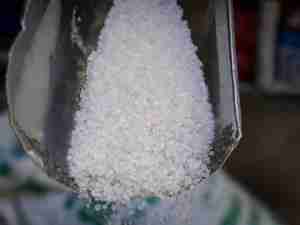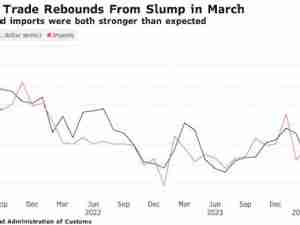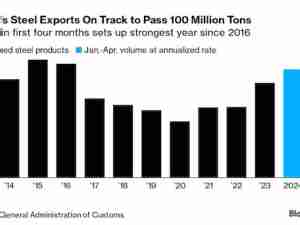- Hong Kong, Li’s home turf, accounted for just percent.
- Numerous other companies don’t break out their British earnings. For instance, Indian software companies such as Tata Consultancy, HCL Technologies and Wipro garnered between percent of their earnings from the U.K., according to Bank of America Merrill Lynch.
Hold Your Nose. Brexit Noodles Are a Dog’s Breakfast: Gadfly
By: Andy Mukherjee and Nisha Gopalan | Jun 24 2016 at 01:36 AM | International Trade
Forget the carnage in markets. Although the gyrations have been wild, particularly in currencies, liquidity and calm will both return. Those fluctuations were never the No. 1 source of concern for multinationals worried about Brexit. Nor was a permanently cheaper British pound ever going to be a font of opportunity for manufacturers.
Even company executives who haven’t heard of the famous argument between economists Milton Friedman and Robert Mundell on fixed versus free currencies intuitively agree with the debate’s insight that exchange rates are like daylight saving: a device that seeks to alter habits only temporarily. Businesses care more about longer-term behavior, which shows up in the thousands of prices large companies grapple with. That’s more about cuisine than clocks; and the menu that the “Leave” campaign has cobbled together is a veritable dog’s breakfast.
Britain’s departure from the European Union will break up a meaty free-trade zone into a complex noodle bowl of overlapping tariffs, crimping competitiveness. Even Li Ka-shing, Asia’s third-richest tycoon and no stranger to chopsticks, was hoping he wouldn’t have to use them. Li’s CK Hutchison owns utilities including Northumbrian Water, drugstore chain Superdrug and telecom operator Three UK. The company garnered 37 percent of earnings before interest and tax from Britain last year, making the country its single-largest market . CK Hutchison shares fell more than 6 percent in Hong Kong on Friday.
Executives at Toyota, which exports about 90 percent of its U.K.-made cars, suggested the Japanese automaker might invest less in Britain were it to leave the EU, adding that a withdrawal could push up levies by as much as 10 percent. Jaguar Land Rover, owned by India’s Tata Group, estimated Brexit could reduce the British carmaker’s annual profit by 1 billion pounds ($1.5 billion) by the end of the decade, according to an internal company document cited by Reuters. As for Tata Steel, which wants to sell its U.K. business, good luck finding a buyer now.
Some businesses will be bruised by Brexit’s impact on asset prices, while other companies may contribute to their decline. As Bloomberg Intelligence analyst Steven Lam notes, large Chinese insurers invested about $2.4 billion in London real estate last year, compared with $2.8 billion in the U.S. (mainly New York). They may slow their forays into post-Brexit U.K.
The immediately obvious damage will still be from the currency. The pound plunged to a 30-year low on Friday after having risen to its highest this year just hours before voting. That will dent corporate earnings for the June quarter. As many as 13 Asian-traded companies, including Li’s Power Assets, Australian hospital chain Ramsay Health and Guoco Group, controlled by Malaysian billionaire Quek Leng Chan, disclosed the U.K. as the source of more than 5 percent of operating income last year.
Yet exchange-rate woes are dwarfed by a far bigger accident. The “yes” for Brexit has undermined a crucially important trade system at a time when the 70-year-old project to end tariffs worldwide has stalled. The Doha round of trade negotiations is dead. The Trans-Pacific Partnership, by far the most attractive deal on offer for Asian businesses, may not survive the anti-trade rhetoric of the upcoming U.S. presidential election. Even if it does, the TPP won’t include China and India.
U.K. assets of non-British companies: $76 billion
The EU, for all its faults, offered free movement of goods, capital and labor in an important economic bloc. That counted for something. The 84 non-British companies that break out their U.K. businesses had more than $76 billion of assets in the country last year. That’s a 2.5 percent increase from three years ago, a far from meager gain given just how coy companies are to invest, especially in slow-growth Europe. By making a hash of that optimism, Brexit has left an altogether bitter taste.
This column does not necessarily reflect the opinion of Bloomberg LP and its owners.









